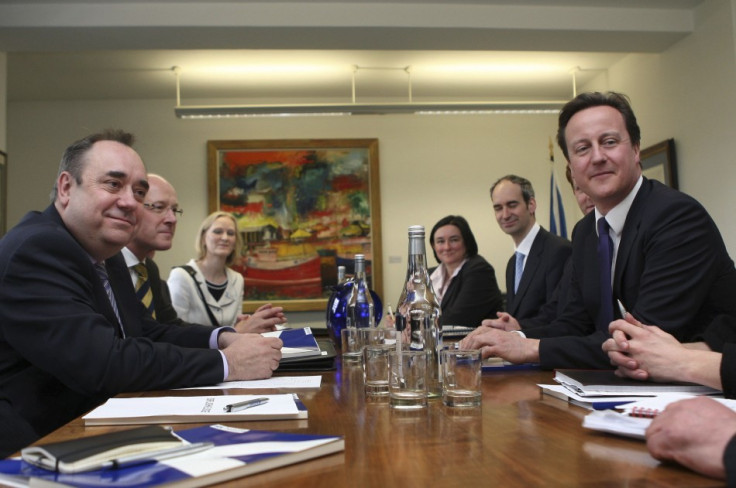Why 2013 Will be a Good Year for Constitutional Prophets

2012 was, until the end (or lack thereof), a kind year to prophets of doom. With the apocalypse conveniently scheduled at the tail end of the year, they got a full twelve months of attention, including from 'serious' news outlets which really ought to know better.
All that is now behind us and the world is, happily, still here. Yet 2013 promises to be a fat year for another, more specialised species of seer: those of us who write about, and speculate on, the constitutional future of the UK.
On the surface, that might seem rather strange. After all, the real action on that front will be kicking off in 2014, with the Scottish independence referendum, the European elections and Northern Irish local elections. In the following years will come the 2015 general election and the Scottish and Welsh devolved elections in 2016.
Compared to all that, 2013 looks like a very lean year indeed. Yet precisely because we are so remote from the events we're writing about, commentators on the topic enjoy wide leeway for speculation.
Our "apocalypse", to stretch the metaphor, is the Scottish referendum. Not because it necessarily represents a specific end (although one side vehemently hope it does), but because the result will greatly shape the outcome of all the subsequent events, from the general election onwards.
This is not only true of the bald yes/no outcome of the poll, but also the scale of the victory and the manner in which the campaign was conducted. As I explained in the Huffington Post, how Alex Salmond handles the referendum campaign will not only affect the result but could have serious consequences for the future of his party, and by extension both Scottish and British politics. Here's just a sample of the questions to be asked:
If the NO side wins: will the SNP split, or collapse? Who would replace them? Will they find a new role in Scottish politics? Will there be any prospect of a referendum in the near-to-mid-future and if so, when? What happens to Alex Salmond? Is there any opening for the Scottish Conservatives? What happens to devolution?
If the YES side wins: how quickly can it all get resolved? If independence isn't achieved by 2016 and the unionists win the devolved elections, what happens then? What terms will Scotland get on EU and NATO membership? What impact will Scottish secession have on the currently volatile situation in Northern Ireland? How can devolution be amended to balance the UK without Scotland, the largest devolved state?
There's plenty more questions where these came from, and they all hinge on the referendum result. Once we know it, we'll be in a much better position to offer informed analysis and speculation on the relatively narrow range of likely outcomes. But we won't be able to enjoy the opportunity to indulge in the sort of broad-spectrum fortune telling that currently occupies most interested journalists and, to be fair, both campaigns as well.
Like all good seers, commentators need something from which to divine their predictions. In place of entrails and tea-leaves, expect forensic dissection of the two campaigns, relevant public pronouncements, and polling shifts which are, this far out, of limited use.
At the moment, the constitutional issue is only really dominating the news agenda in Scotland (if we take Northern Ireland's riots as not strictly a 'constitutional issue'). But as newspapers and broadcasters get their coverage in place in time for 2014, there is going to be increasing demand for related commentary, and comparatively little hard news on the issue to compete with it.
As both sides raise funds, prepare attacks and marshal their forces, 2013 is one last year of fitful calm before what promises to be a long and mighty political storm. The storm-bringers, at least, are certain to enjoy it.
Henry Hill is author of the popular Dilettante conservative blog. He was voted the UK's top Conservative and Right Wing student blogger in 2011.
© Copyright IBTimes 2025. All rights reserved.





















